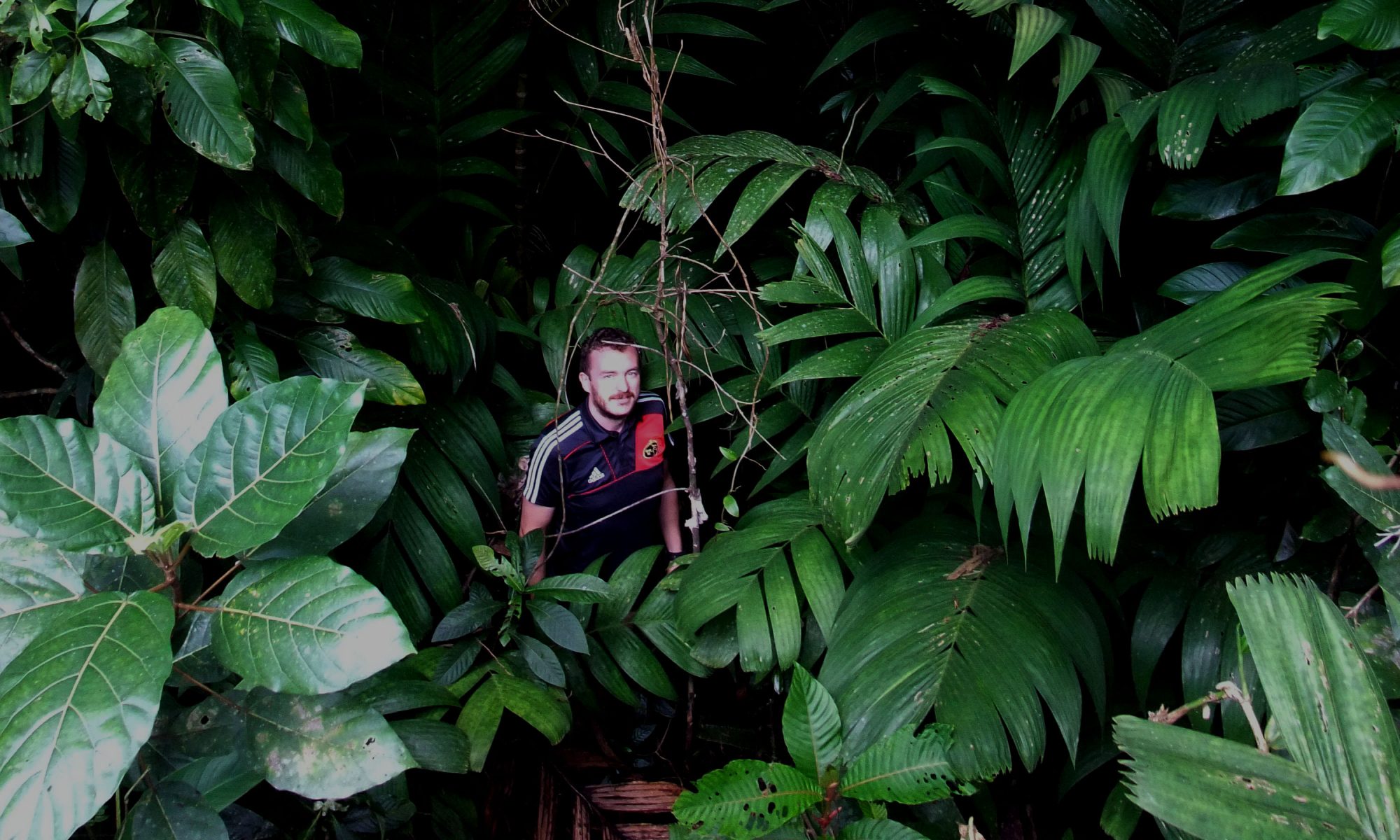The Project
The main goals of this research include 1) to clarify to which extent Pinanga coronata modifies the forest ecosystems in both sections of Colo-i-Suva forest reserve (Colo-i-Suva and Savura); 2) to predict the further spread and population growth of Pinanga coronata; 3) to deliver sufficient data for a solid risk assessment; 4) to help capacity building for a sustainable management of Fiji’s forests, and of biological invasions in Fiji and other tropical South Pacific island nations.
Aspects of this research include patterns of invasion (affected areas, current range), vectors of dispersal, speed of the invasion, demographic structure of tree and shrub populations, functional traits associated with plant invasions, below ground effects (soil fauna characteristics), prediction of future dynamics of affected forests, prediction of future spread of Pinanga coronata, and a field-research based risk assessment.
In particular, we examine the palm´s population structure, its impact on abiotic site factors and the performance of other plant species in 35 permanent plots (including 280 subplots) established along an invasion gradient in the Colo-i-Suva forest reserve, Viti Levu, Fiji Islands. Research started in September 2014.
Subprojects
Galvin, Stephen (Postdoc research, ongoing): A dendroecological assessment of the impact of invasive alien Ivory cane palm (Pinanga coronata) on Mahogany (Swietenia macrophylla) in the Colo-i-Suva forest reserve, Viti Levu, Fiji Islands. The University of the South Pacific, Faculty of Science, Technology & Environment (FSTE). (joint project with Dr Esther Fichtler, Department of Crop Sciences, University of Goettingen, Germany).
Lodhar, Sherri (PhD, ongoing): Structure and dynamics of a Pacific submontane rainforest under impact of an alien understory tree invasion. The University of the South Pacific, Faculty of Science, Technology & Environment (FSTE). (joint supervision with Professor Estelle Forey-Leyssenne, Groupe de Recherche ECODIV, University of Rouen, France).
Julia Morley (BA in Forest Ecology, completed 2019): Using terrestrial laser scanning to quantify the effects of the invasive alien ivory cane palm (Pinanga coronata) on forest structure in a tropical Pacific island forest reserve. Faculty of Forest Science and Forest Ecology, Georg-August University of Goettingen, Germany.
Gopaul, Sunil (Master in Environmental Science, completed in 2018): Abiotic effects of the invasive alien palm Pinanga coronata in the Colo-i-Suva Forest Reserve, Fiji. The University of the South Pacific, Faculty of Science, Technology & Environment (FSTE). (joint supervision with Dr Michelle McKeown, Landcare Research, NZ).
Hanson, Geon C. (Master in Environmental Science, completed in 2017): Population structure, allometry, and spread of alien ivory cane palm, Pinanga coronata, in a protected forest landscape on Viti Levu, Fiji. The University of the South Pacific, Faculty of Science, Technology & Environment (FSTE).
Dyer, Michael J. (Honours, completed in 2016): The distribution of the invasive palm Pinanga coronata and its effects on native tree ferns in the Colo-i-Suva area, Viti Levu, Fiji. The University of the South Pacific, Faculty of Science, Technology & Environment (FSTE) & The University of South Australia (UniSA). (joint supervision with Dr Gunnar Keppel, University of South Australia; this research was awarded the UniSA Honours Medal 2017; see http://w3.unisa.edu.au/unisanews/2017/September/story13.asp).
Marie-Isabell Lenz (BA in Geography, completed in 2016): Risk assessment of the invasive alien ivory-cane Palm (Pinanga coronata) in the islands of the tropical South Pacific. The University of the South Pacific, Faculty of Science, Technology & Environment (FSTE) & Georg-August University of Goettingen, Germany. (joint supervision with Dr Stefan Erasmi, Department of Geography, University of Goettingen, Germany).
Jean-Benoit Mathieu (BA in Geography, completed in 2015): Diversity of understory vegetation in a submontane tropical rainforest under impact of an invasive alien palm species. The University of the South Pacific, Faculty of Science, Technology & Environment (FSTE) & University of Laval, Quebec, Canada.
